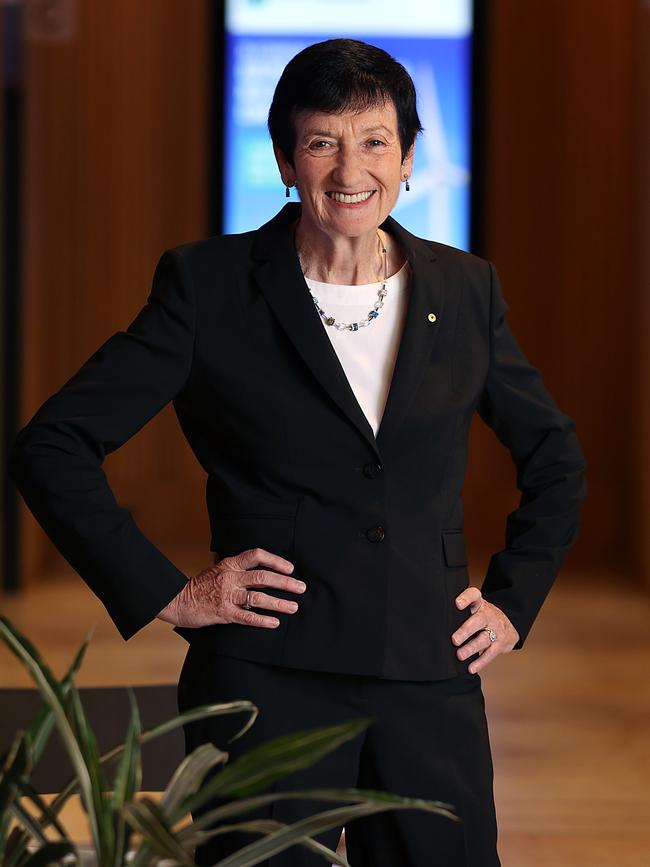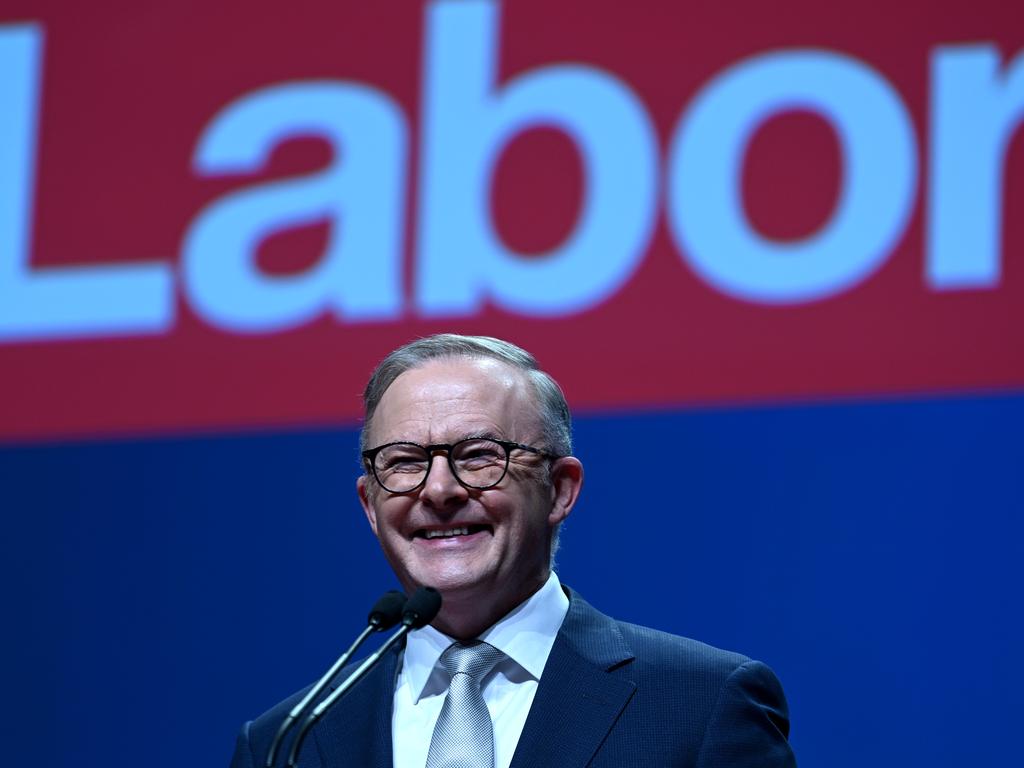Business to nation: choose riches with economic reforms or ruin
Corporate leaders call on Labor to raise the GST rate and remove onerous regulation to power clean energy and improve material wellbeing.

The nation’s most powerful corporate leaders are calling on Labor to raise the GST rate, subsidise leading-edge enterprises and remove onerous regulation to power the clean energy revolution in a mission to improve material wellbeing and ease the fiscal burden on young Australians.
The Business Council of Australia’s Seizing the Moment plan, published on Monday, argues the Albanese government must diversify and modernise the economy through co-investments in dynamic new industries, the promotion of lifelong learning, and lower company and personal income tax rates if Australia is to cash in on a burgeoning Asian middle class that will soon be 3.5 billion strong.
With the “clock ticking” and other nations moving quickly, the BCA warns Australia is at a crossroads, at risk of crippling debt, societal stagnation and squandering the mammoth advantage of our energy endowments, high-skilled workforce and treasured institutions.
“Our narrow economic base makes us vulnerable to global shocks and the decarbonisation agenda, while red tape and over-regulation are suffocating business, and deterring investment and innovation,” the report says.
“Government spending is rising, while our children’s education standards are slipping. On our current path, we face the real risk of Australia being overtaken by the rest of the world and Australians being worse off for generations to come.”
The detailed “timetable for change” seeks to puncture complacency, end a debilitating capital strike, and shake off a decades-long policy drift under Labor and the Coalition governments to, ultimately, raise labour productivity growth, which has slumped to its lowest level in 60 years.

BCA president Tim Reed said in the post-pandemic recovery, a community assailed by the cost-of-living crunch was primed for a more meaningful policy discussion and understood trade-offs were required for the nation to prosper.
“If we want sustained wages growth and to maintain full employment, the nation needs a reinvigorated economic growth agenda driven by large-scale investment, higher productivity and greater innovation,” Mr Reed said.
If Australia’s economy were to grow at its long-run average of 3.3 per cent rather than at anaemic pre-crisis rates and today’s official forecasts, the BCA estimates after a decade our economy would be $200bn larger, with $50bn more available in tax to pay for services, while each Australian would be $7000 a year better off.
Writing in The Australian, BCA chief executive Jennifer Westacott urges governments to aim for a “dynamic economy driven by more resilient, globally facing industries where the country adds value to everything it produces”.
“This is the high road of growth, opportunities and world’s best practice,” she writes.
“It is an economy fuelled by enhanced productivity, greater competitiveness and our ability to unleash the talent of our people to deliver sustained higher wages, maintain full employment and vastly improved living standards.”
The BCA report is timed to take advantage of a 14-month window where there is no scheduled state, territory or federal election and comes after the three-day ALP national conference in Brisbane, where Anthony Albanese told delegates that Labor would aim to stay in power “for the long haul, the long term”.

The Prime Minister will address the BCA’s annual dinner in Sydney on Wednesday, a day before the release of the latest Intergenerational Report that will outline the structural budget crisis governments will confront over the next 40 years as the ratio of workers to retirees plummets, amid escalating social service costs.
The call for a broadbased policy refresh comes amid warnings to the political class from outgoing Reserve Bank governor Philip Lowe about the consequences of the nation’s dire productivity performance and a steady stream of key reviews on defence, productivity, migration and higher education delivered to the Albanese government.
In a commissioned survey of voters, and by drawing on its vast networks across the country, the BCA has found a community beset by the rising cost of living, while yearning for more effective governments with a plan and vision, and is demanding urgent reform to improve health services, the tax system and aged care.
The BCA acknowledges governments across the country have started and, in many cases, are well progressed on many of these issues.
“What we need now is co-ordination, alignment and urgency across the federation and across business”, Ms Westacott writes.
“We need to re-energise the conversation over Australia’s future prosperity. Taming inflation – the current issue we are facing – needs to represent a fresh start, not the end, of Australia’s reform journey.”
Amid geostrategic realignments, financial disruptions and decarbonisation, the big business lobby is trying to jump-start a post-pandemic reform agenda through six big shifts: broadening and strengthening our industrial base to access global supply chains; unleashing the potential of our people; continuing to be outward looking; being more competitive and productive; being private sector led; and better government and service delivery.
The report then identifies 10 policy levers to make those transitions: enhanced trade, strategic industry policy, the move to net zero, skills development, taxation, regulatory reform, a workplace overhaul, social inclusion, advancing the economic interests of women and more effective government.
Pointedly, the BCA warns the ageing of the population is a “demographic time bomb” and that highly indebted Canberra and the states must “prevent a looming catastrophe of unaffordable government service delivery by resetting fiscal sustainability and providing fit-for-purpose services”.
“Australia needs better value from government through more disciplined spending and significant improvements to public service delivery,” the report said.
The BCA warns the unstoppable global shift to clean energy means Australia can take advantage of its abundance of natural resources and location in the Indo-Pacific, as long as governments are in lock-step on the policies to achieve the nation’s 2030 target, outline our 2035 goals, and reach net zero emissions by 2050.
The BCA calls for a wholesale taxation review, so that the system is more efficient and sharpens incentives for businesses to invest, innovate and hire.
It says indirect taxes, such as the GST, should do more of the heavy lifting and advocates raising the rate from 10 per cent and broadening its base, while stamp duty on property transfers should be abolished in favour of a land tax.
Savings should be taxed in a neutral way, the report said, via a dual income-tax system or changes to the capital gains tax discount.
Unsurprisingly, the lobby calls for a more competitive company tax rate, which means a cut to the top rate of 30 per cent that applies to its membership, referencing the OECD average of 25 per cent as a benchmark.
The report argues for a streamlined workplace relations order, with fewer and simpler awards, national employment standards of minimum protections as a bedrock to the system, and the promotion of single enterprise bargaining.
Ms Westacott said reversing the productivity slump would require “transformation of the nation’s poor performing and fragmented education system” at all levels, the advancement of women and more investment in the digital tools workers increasingly use.
“Investment drives innovation which drives productivity and drives higher wages,” Ms Westacott writes.
“We cannot continue to have students leaving school and choosing the wrong study or career paths. Nor, can we accept a situation where we lack a national system of early childhood education.
“And we cannot bequeath our children and grandchildren a lower standard of living than ours.”








To join the conversation, please log in. Don't have an account? Register
Join the conversation, you are commenting as Logout